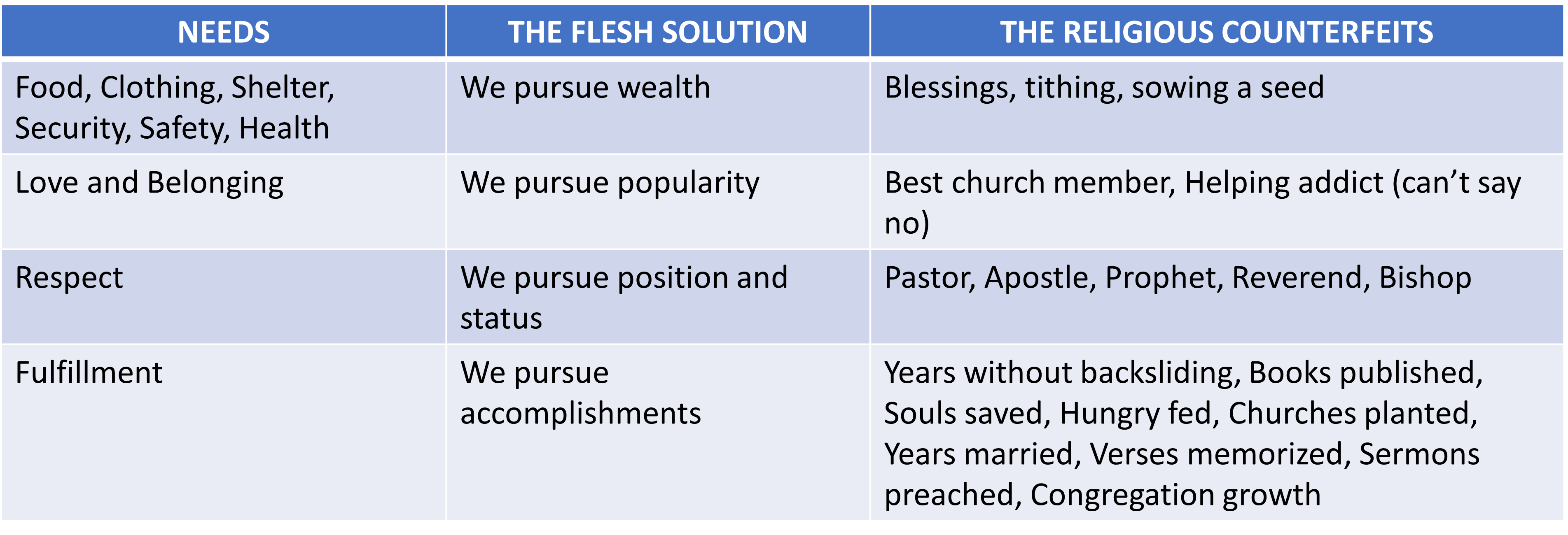Building Kingdom Leadership Capacityનમૂનો

Crucifixion
Selflessness

"A leader is a person who must take responsibility for what’s going on inside his or her consciousness, lest the act of leadership create more harm than good." ~ Parker Palmer
Yesterday we talked about the distractions that come from outside to distract us from our purpose but the more insidious distractions are those that come from within. There are self-ish desires (also called carnal desires or fleshly desires) that war against our desire to please God and serve Him and others.
Let's revisit Matthew 10:39. What is this 'life' that Jesus says we must give up? We may think about wealth, popularity, and social status but these are simply things that we reach for to meet the legitimate needs of our souls. What we need to do is get to the root of our desires and crucify them as Galatians 5:24 instructs. However, most of us have not done sufficient self-examination with God to identify what rogue desires of the flesh are lurking in our hearts and giving them over to God to be crucified with Christ.
We will use the table above to begin this process of self-examination. The lefthand column shows some of the typical needs that drive us. In the middle column, we see some of the ways we seek to meet these needs in the flesh. The problem is of course that these are legitimate needs that every human has. We cannot simply, not need love for example but what we have to deal with is how to get legitimate needs met.
This is a serious problem for leaders. Think of a pastor who has a deep desire to be financially secure. How will he resist the temptation to manipulate his members to give more in the offering by emphasizing tithing or sowing 'seeds'? The people may never know but God knows. Or what about the Christian supervisor who has a deep need to be respected on the job? How will she resist the temptation to abuse her authority to demand that respect?
Often we Christians think that pursuing these same carnal desires in a religious way makes it okay. The righthand column has some examples of how we do this. Don't be fooled. The righthand column is just as carnal as the middle column.
In Matthew 6:31-33 Jesus gives the answer to this dilemma. He says, "...don’t worry about these things, saying, ‘What will we eat? What will we drink? What will we wear?’ These things dominate the thoughts of unbelievers, but your heavenly Father already knows all your needs. Seek the Kingdom of God above all else, and live righteously, and he will give you everything you need." To paraphrase in the context of our discussion: If we make Christ our #1 pursuit, He will meet all our needs, empowering us to serve others selflessly. Do not misconstrue this to mean that we are obedient to God so that we will be blessed. This is just using God to get what we really want. What Christ is proposing is something much more radical - that all our needs are met in Him! He is all we need! He is the Living Water. He is the Bread of Life. He wants to be our one desire!
As leaders, we must constantly be vigilant as to what is going on in our hearts and daily bring ourselves before God like David and say, "Search me, O God, and know my heart; test me and know my anxious thoughts. Point out anything in me that offends you, and lead me along the path of everlasting life."
When we completely trust and rely on God to meet our needs, crucifying our fleshly desires with Christ, it frees us to genuinely care for others with no hidden agendas. This selflessness builds trust with others which gives us greater influence in their lives.
Journal with Holy Spirit: Review the list of needs in the table. Where are you experiencing any sense of lack in your life? How are you getting these needs met?
About this Plan

You will be taken on a 15-day journey that begins with deeper discernment of your unique identity and calling in Christ, moves through examination of the motives and intents of your heart, and ends with exploring practices of deeper partnership with God. You will discover a kingdom model for leadership and uncover hidden barriers that may be keeping you from reaching your full leadership potential in God.
More
સંબંધિત યોજનાઓ

Learning to Practice the Sabbath

Wrapped in Christ: Claiming Gospel Freedom

The Ministry of Rest!!!

Sweeter Than Honey: Enjoying God in His Word

When Conflict Comes: A 3-Day Marriage Plan

Contend for More, Content With Less

Strengthen Your Faith #6 the Heavenly Gifts

Finding Rest in a Restless Marketplace

5 Days to Deal With Feeling Unappreciated at Work
